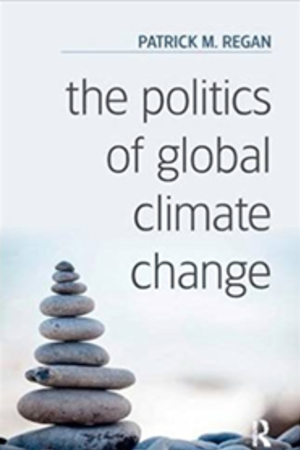The Politics of Global Climate Change

Paradigm, 2015
In 2009, the U.S. House of Representatives passed legislation requiring reductions in greenhouse gas emissions by 18 percent over the coming decade. Later that year, President Obama traveled to Copenhagen to sign a treaty requiring reductions by 50 percent over a two-decade period. The President came back with nothing: no firm commitment to reduce emissions and only a vague target to hold global temperature rises to under 2°C.
How does a President who has a 75-vote majority in the House and a 19-vote majority in the Senate—who has pre-approval for a treaty reducing greenhouse gas production by 18 percent—not achieve a treaty with at least the minimum goal of 18 percent reductions by 2020?
Others have answered the puzzle by looking at institutional designs or negotiation dynamics. This book articulates a multilevel process that starts with local politics to explain how they can influence international negotiations and why President Obama’s efforts in Copenhagen were doomed to fail. Understanding the role of local private interests can help form strategies for overcoming national resistance to climate change legislation and ultimately international agreements that could change environmentally self-destructive course of the U.S.
This book:
- Applies the logic of collective action to local and international politics
- Examines the influence of domestic politics on international politics
- Provides a unique perspective on the foreign policy process
- Unravels the role of uncertainty and offers a view of future possibilities both political and climatological
About Pat Regan »
Reviews
“This brief book is the perfect primer on the challenge of climate change and the politics that will shape how we design and adopt solutions to it. Regan gives us an informative, accessible, succinct, and yet comprehensive introduction to climate change as a collective action dilemma, the failure to date to address it adequately, lessons from comparable success stories in global environmental policy, and a realistic political path forward for a climate change policy that can work.”
— Michael E. Kraft, University of Wisconsin–Green Bay
“The author revives rational choice theory in a way that can aid not only in understanding why climate negotiations failed, largely due to U.S. domestic politics, but in understanding how it can actually be rational to adopt costly mitigation measures... The extensive look at U.S. Congressional politics gives a unique entrée into U.S. foreign policy vis-à-vis international climate negotiations. This is an important contribution to the field.”
— Theresa Jedd, Colorado State University